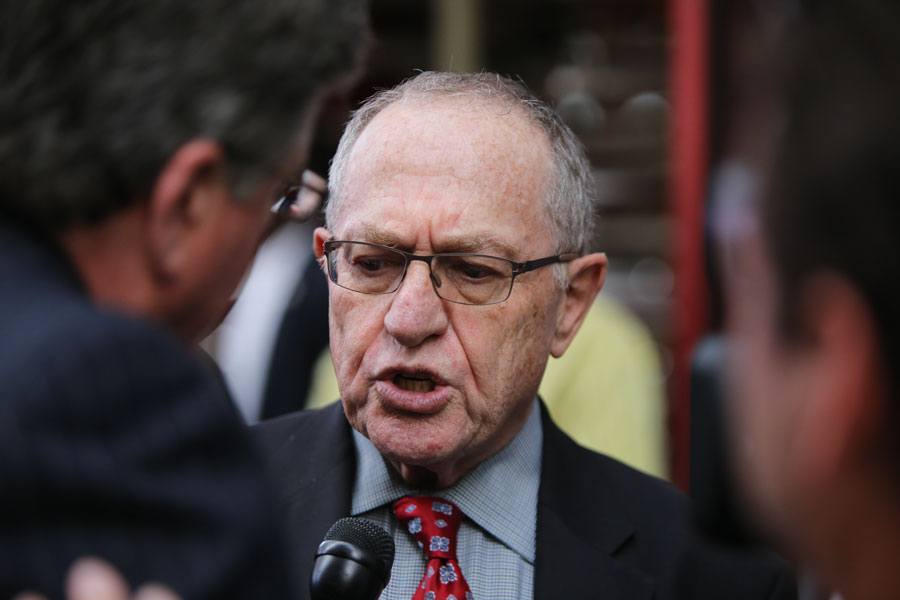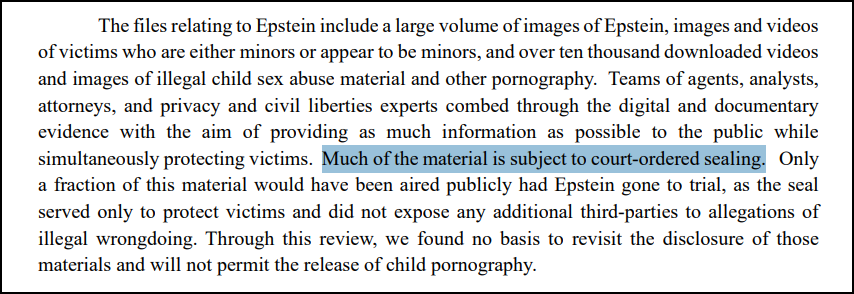
NEW YORK, NY – As public pressure mounts to disclose the full extent of Jeffrey Epstein’s network and activities, one of his former attorneys, Alan Dershowitz, has pointed to an often-overlooked obstacle: the judiciary. According to Dershowitz, the primary reason key documents remain hidden from the public is not obstruction from federal agencies, but rather sealing orders issued by two New York judges overseeing related civil and criminal proceedings.
In recent media appearances, Dershowitz has singled out Judge Richard Berman, who oversaw Epstein’s criminal case in the Southern District of New York, and Judge Loretta Preska, who presided over civil litigation tied to Ghislaine Maxwell. He claims both judges have blocked the release of significant records, including names and evidentiary materials, by maintaining strict sealing orders that continue to protect individuals who may have been named in the Epstein files.
What the Department of Justice has said is that they’ve released everything they can legally release,” Dershowitz stated in a recent interview. “What’s being withheld is under seal by two judges in New York.”
This assertion has now found indirect corroboration in a recent memo issued by the Department of Justice, earlier this month related to the Epstein investigation. In the DOJ’s summary, a key line stood out: “Much of the remaining material remains under court seal.” The Department emphasized that its ability to release additional information was constrained not by a lack of willingness, but by the legal limitations imposed by the judiciary—particularly where sensitive victim information and sealed court proceedings are concerned.
Legal experts agree that judicial sealing is a major, and often insurmountable, barrier to transparency. Former federal prosecutor Neama Rahmani told the Washington Examiner that the scope of sealing in these cases exceeds what is typical, especially in civil matters. “There’s a lot that could be unsealed,” Rahmani noted, “but it would take legal action, not just political pressure.”
Over the past year, momentum has been building within Congress to push for the release of the so-called “Epstein files.” Lawmakers, including House Speaker Mike Johnson and Rep. Marc Veasey, have expressed support for greater transparency. Veasey recently introduced a House resolution demanding the full release of all Epstein-related records, including visitor logs, flight manifests, and sealed depositions.
However, Dershowitz’s comments and the DOJ’s confirmation that much of the material remains sealed highlight a growing divide between what politicians and the public want to see and what the courts will legally permit.
While the DOJ’s July release included internal memos, video surveillance records, and limited interview summaries, many were redacted or incomplete. The Department stated flatly that no “client list” exists as such, and that any remaining names tied to potential crimes may still be protected under ongoing legal processes or victim privacy laws.
Notably, Judge Preska has slowly unsealed portions of civil court records in recent years but has maintained redactions in cases where individuals were not criminally charged, citing reputational harm and lack of public interest as reasons. This judicial approach has drawn criticism from transparency advocates who argue that the public deserves to know the full scope of Epstein’s associations, regardless of whether those individuals were formally indicted.
As of now, there are no clear legal motions underway to challenge the seals that remain in place. Absent such challenges – or direct court decisions to reverse them – it is likely that a large portion of the Epstein archive will remain out of reach, regardless of who is in political power or what resolutions Congress may pass.
In summary, while the Department of Justice appears to have released what it can under current law, it is clear that the judiciary holds A key to unlocking much of the remaining information in the Epstein saga. As public interest persists, and media pressure intensifies, the conversation is shifting from Washington to the courtrooms of New York – where the real decisions about transparency will be made.
Pam Bondi May Have Had Access to Sealed Epstein Files – But It Came With Limits
A pivotal question has emerged amid public frustration over the incomplete release of Epstein records:
Did Attorney General Pam Bondi actually see sealed materials — such as the flight logs and other evidence — even though they now remain off‑limits?
Bondi, appointed by former President Trump, once claimed in February that an Epstein “client list” was on her desk. She later clarified she meant the entirety of the investigatory file, not a blackmail-style list. She also referred to a “truckload” of evidence, including flight logs and videos – some of which were indeed released at the time.
What we know from the DOJ’s February declaration:
- Bondi and the FBI publicly released flight logs, a redacted contact book, masseuse lists, and internal evidentiary records .
- That release reflected material which had already entered the public record via Ghislaine Maxwell’s criminal case and subsequent civil court proceedings.
- A DOJ memo later confirmed: “Much of the remaining material remains under court seal.”
Did Bondi see truly sealed documents?
Legal reporting suggests yes – possibly. Bondi asked the FBI to hand over “thousands of pages” beyond what was initially released. Her statements imply that at least some of those documents were courtroom-sealed, including internal investigative evidence, grand jury witness testimony, and victim-protected filings. Though Bondi did not publicly release those materials, it appears she may have reviewed them under legal privilege before they were redacted or blocked by courts.
Why they’re sealed
It’s standard court practice, especially in high-profile sex-trafficking cases, to seal grand jury testimony and victim impact evidence to protect identities and preserve investigatory integrity. This is exactly the same reasoning that Alan Dershowitz has pointed out – sealing is judicial, not bureaucratic .
Conflicts and consequences
Bondi’s suggestion that she examined sensitive, sealed material caused friction at the DOJ. Internal reports indicate disputes with FBI leadership, including Deputy Director Dan Bongino, over expectations versus reality of what could be released.
Bottom line
- Bondi appears to have seen additional Epstein-related documents – including flight logs and investigatory records – that are not publicly available.
- However, her authority to make them public was constrained by judicial orders to preserve victim privacy and legal confidentiality.
- Any truly unrestricted access to those documents would require court motions to unseal or formal disclosures, not executive directive.
Key Takeaways for Readers
- Bondi’s reference to unseen materials likely reflects a private review of sealed court documents, not public disclosure.
- The phrase “client list” was misleading – the actual contents involved broader investigatory files, including flight logs.
- The primary barrier to public access is judicial sealing, not a refusal by Bondi, the DOJ, or the FBI.
- To gain insight into what remains hidden, stakeholders must pursue legal unsealing motions, not rely on political pressure.
Stories behind the rich and powerful named in the Jeffrey Epstein court files | 60 Minutes Australia
Alan Dershowitz, a high-profile constitutional lawyer and former Harvard Law professor, played a central role in Jeffrey Epstein’s legal defense during his 2007–2008 criminal case in Florida. He was instrumental in negotiating Epstein’s controversial non-prosecution agreement, which allowed the financier to avoid federal charges and serve a reduced sentence.
In later years, Dershowitz himself became entangled in the case when Virginia Giuffre, one of Epstein’s most prominent accusers, alleged that she had been trafficked to him as a minor. Dershowitz has consistently denied the allegations and filed defamation lawsuits in response. The legal dispute was ultimately settled, with Giuffre issuing a statement that she may have been mistaken. Despite the controversy, Dershowitz remains a vocal commentator on the case, recently arguing that sealed court orders from two New York judges – not government agencies – are the true reason key Epstein records remain undisclosed.



